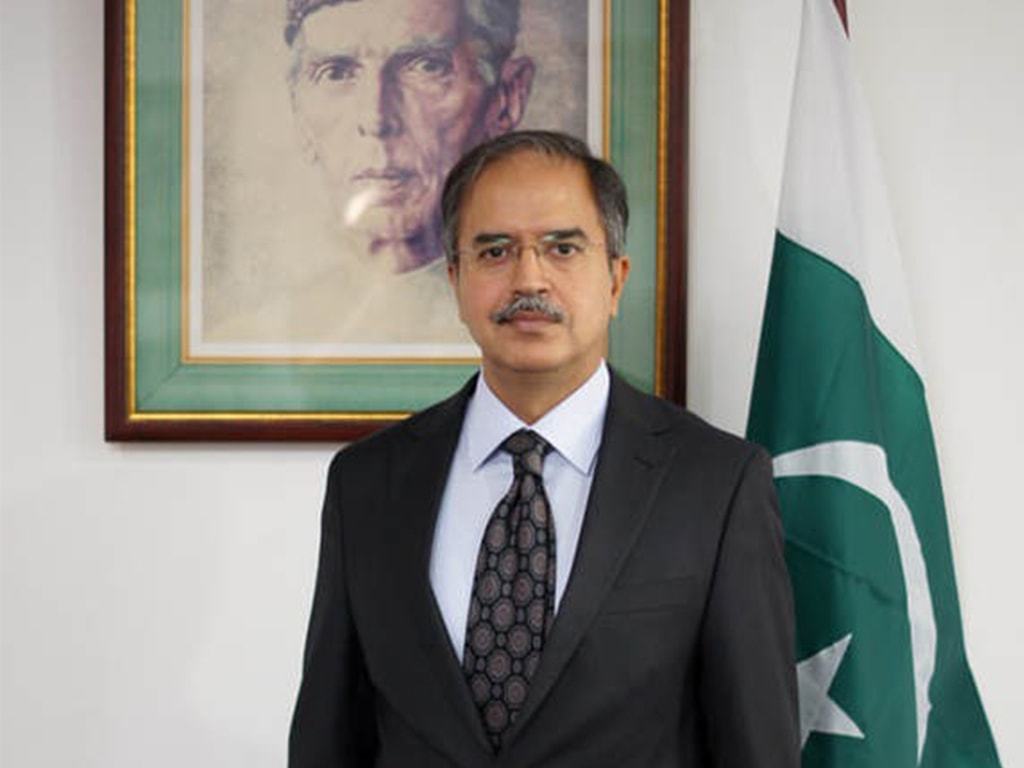WNAM REPORT: Pakistan has welcomed the diplomatic progress towards settling the “tragic” Russia-Ukraine conflict, highlighting the recent limited agreement prohibiting attacks on energy infrastructure followed by another to ensure safe navigation in the Black Sea, hoping the parties would honour their commitments.
“We appreciate the United States and its leadership’s active engagement, also involving the Russian and Ukrainian leadership, in bringing this to fruition,” Ambassador Asim Iftikhar Ahmad, permanent representative-designate of Pakistan to the United Nations, told the UN Security Council on Tuesday.
“We remain optimistic that this new dynamic and the momentum generated by these initial steps would eventually lead to a comprehensive and permanent ceasefire,” he said during a debate on the humanitarian situation in war-shattered Ukraine.
The Pakistani envoy also commended the role of Saudi Arabia and its leadership in facilitating dialogue for promoting peace.
Earlier, UN Secretary-General Antonio Guterres also welcomed the diplomatic progress, saying his good offices remain available to support all efforts towards a lasting peace in Ukraine.
In his remarks, Ambassador Asim Iftikhar Ahmad reiterated Pakistan’s position on the Ukraine conflict, saying Islamabad has enjoyed friendly relations with both the parties, advocating dialogue and diplomacy, cessation of hostilities and peaceful resolution of this conflict.
“We believe that the security concerns, which remain at the center of this conflict, can only be addressed through an inclusive approach, which in turn would ensure the sustainability and durability of peace in the wider region.”
Voicing deep concern over the humanitarian situation, the Pakistani envoy said that the conflict, now in its fourth year, has caused immense human suffering and massive damage to infrastructure, economy, and society that has had vast consequences for the global economy, particularly for the developing countries.
“Every human life matters, and is not merely a number.”
Pakistan’s position on these as other conflicts, he said, was based on adherence to the principles of the UN Charter, self-determination for peoples, respect for sovereignty and territorial integrity of states and non-acquisition of territory by the threat or use of force.
“Consistent with the Charter, states must also implement international agreements and abide by their respective obligations , and respond to the legitimate security interests of all states.”
The ambassador pointed out that the protection of civilians and infrastructure was an obligation under international law and international humanitarian law, urging full and consistent adherence to these principles by all parties.
In this regard, he underscored the need for ensuring access and protection for humanitarian workers in conflict zones, and said the Third Geneva Convention, which governs the treatment of prisoners of war (POWs), was binding on all parties.
Opening the debate, a senior UN official warned that continuing daily attacks and humanitarian aid cuts were hitting Ukrainian civilians hard.
Since March 1, there has not been a single day in Ukraine without an attack in which civilians were harmed, Joyce Msuya, deputy head of the UN humanitarian affairs office, told the Council.
“This, and the severe global funding cuts for humanitarian operations, including for Ukraine, is further reducing our capacity to provide life-saving aid,” she said.
The UN humanitarian programme for Ukraine this year calls for $2.6 billion in aid, but it is only 17 percent funded so far.
“Recent funding cuts have led to a reprioritization of Ukraine response efforts,” said Msuya, expressing concern in particular about women and girls.


